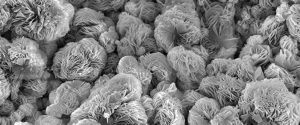How Do Oxidative Medicine Therapies Work?
Oxidative medicine therapies are based on the relationship between oxygen and cellular respiration. If the oxygenation process within the body is weak or deficient, the body cannot adequately eliminate toxins. Toxic buildup leads to fatigue, dullness, and sluggishness. When poor oxygenation is chronic, our overall immune response to germs and viruses is weakened making us vulnerable to a wide range of diseases, including cancer.
 Many pathogens, including cancer cells, are anaerobic, meaning that they thrive in low-oxygen environments. In 1966, Nobel Prize winner Dr. Otto Warburg confirmed that a key precondition for the development of cancer is a lack of oxygen in the body at the cellular level. This is also known as mitochondrial dysfunction.
Many pathogens, including cancer cells, are anaerobic, meaning that they thrive in low-oxygen environments. In 1966, Nobel Prize winner Dr. Otto Warburg confirmed that a key precondition for the development of cancer is a lack of oxygen in the body at the cellular level. This is also known as mitochondrial dysfunction. Oxidative therapies accelerate oxygen metabolism and stimulate the release of oxygen atoms from the bloodstream to the cells. When oxygen levels increase, the body’s anaerobic environments decrease along with the potential for disease. When large amounts of oxygen flood the body, germs, parasites, fungi, bacteria, and viruses are killed. Simultaneously, healthy cells are better able to multiply resulting in a stronger immune system and an overall improved immune response. Additionally, oxidative therapies oxygenate the body and help change anaerobic environments in the body into aerobic environments. This change in the body’s environment not only makes the body an inhospitable host to cancer cells, it actually kills cancer cells.
Effects of Oxidative Medicine
Oxidative medicine therapies can help cancer patients tremendously. This type of treatment is one of the most effective ways to increase the immune system and detoxify the body and at the same time oxygenate the body. Ozone is used primarily to kill viruses, destroy bacteria, eliminate fungi, and change the body’s anaerobic environment into an aerobic one. It also oxygenates the blood, improves circulation, stimulates other oxygen-producing functions in the body, and helps regulate the immune system.
Benefits of Oxidative Medicine
- Stimulate the production of white blood cells, which are necessary to fight infection;
- Are antimicrobial in nature killing viruses, bacteria, and fungus;
- Increase oxygen and hemoglobin disassociation thus increasing the delivery of oxygen from the blood to the cells;
- Antineoplastic, which means that they inhibit the growth of new tissues like tumors;
- Oxidize and degrade petrochemicals;
- Increase red blood cell membrane dispensability thus enhancing their flexibility and effectiveness;
- Increase the production of interferon and tumor necrosis factor which the body uses to fight infections and cancers;
- Increase the efficiency of the antioxidant enzyme system, which scavenges excess free radicals in the body;
- Accelerate the citric acid cycle, which is the main cycle for the liberation of energy from sugars. This then stimulates basic metabolism. It also breaks down proteins, carbs and fats to be used as energy;
- Increase tissue oxygenation, thus bringing about patient improvement.
- Increase the number of granulocytes in the body (a type of white blood cell that the body uses to fight infections);
- Stimulate the formation of monocytes (a type of white blood cell that scavenges, hunts and kills bacteria);
- Stimulate T-helper cells (white blood cells that orchestrate the immune response and signal other cells in the immune system to perform their special functions);
- Help increase the production of gamma interferon (a protein found when cells are exposed to viruses as well as other cytokines, cellular messengers, that promote healing). Non-infected cells that are exposed to interferon become protected against viral infection.
References on Oxidative Medicine
Rupasinghe, Vasantha, Hussain, Tarique, Tan, Bie, Yin, Yulong, Bachier Francois,Tossou, Myrlene C. B., Rahu, Najma, 2016, 2016/09/22, Oxidative Stress and Inflammation: oxidative medicine and cellular longevity issn What Polyphenols Can Do for Us?, SP – 7432797 VL – 2016, Oxidative stress is viewed as an imbalance between the production of reactive oxygen species (ROS) and their elimination by protective mechanisms, which can lead to chronic inflammation. Oxidative stress can activate a variety of transcription factors, which lead to the differential expression of some genes involved in inflammatory pathways. The inflammation triggered by oxidative stress is the cause of many chronic diseases.
Polyphenols have been proposed to be useful as adjuvant therapy for their potential anti-inflammatory effect, associated with antioxidant activity, and inhibition of enzymes involved in the production of eicosanoids. This review aims at exploring the properties of polyphenols in anti-inflammation and oxidation and the mechanisms of polyphenols inhibiting molecular signaling pathways which are activated by oxidative stress, as well as the possible roles of polyphenols in inflammation-mediated chronic disorders. Such data can be helpful for the development of future antioxidant therapeutics and new anti-inflammatory drugs. 1942-0900, https://doi.org/10.1155/2016/7432797, 10.1155/2016/7432797, Oxidative Medicine and Cellular Longevity, Hindawi Publishing Corporation
For answers or to make an appointment, call us toll-free at
800-923-7878
Recover your vitality, reclaim your energy and rediscover your health.



